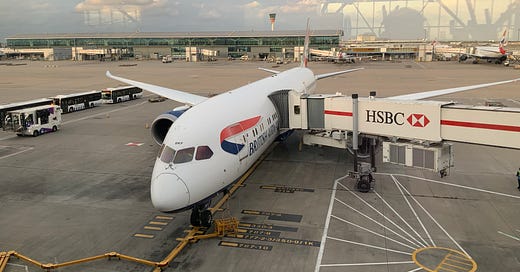BA's Loyalty Market Meltdown
The market has responded badly to BA’s changes – what can airlines learn?
Nothing beats the King James Bible for glorious English prose. Chapter 13, verse 18 of the Gospel of Luke is particularly memorable:
“There shall be weeping and gnashing of teeth, when ye shall see Abraham and Isaac and Jacob and all the prophets in the Kingdom of God, and you yourselves thrust out.”
Substitute “British Airways lounges” for “Kingdom of Go…
Keep reading with a 7-day free trial
Subscribe to Airline Revenue Economics to keep reading this post and get 7 days of free access to the full post archives.



